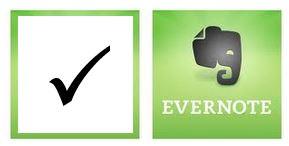Developing a habit is an important part of creating change, but an equally important aspect is creating a process. And not just any process, a SIMPLE process. For if I’ve learned anything working with my clients, I’ve learned “if it’s not simple, it’s too hard.” Creating a simple process is perhaps the most crucial aspect of driving change.
What does creating a process look like? If I asked you to write down the steps to do something you do every day you could. Let’s take getting dressed each morning. My system looks like this: 1. Take shower 2. Brush teeth 3. Put in contacts….. etc. I do the same thing each morning. I don’t need to think about it, I’ve done it so many times that it has become rote.
Everything that is done routinely needs a clearly thought out process. Let’s apply this concept to staying on top of the papers in your office. We start by breaking this into WHAT, HOW and WHEN.
“WHAT” is the goal: “round up the piles, papers and notes into a clearly prioritized task list in order to be able to focus on my most important work.”
“HOW” is the process:
- Gather all papers and notes that are laying around into one big pile
- Pick up the top item in the pile – ask: what needs to be done?
- If I need to put it away – put it away
- If I don’t need it – put it in the trash, recycle or shred zone
- If I need to give it to someone else – put it in a pile with their name on it
- If I need to take action on it – prioritize the action (critical, hot, sooner, later) on my task list and decide if I still need the paper (put it in the take action zone or throw away if I can)
- Pick up the next item and process
- Continue until I’ve cleared the pile
- Distribute sorted papers to their proper places
- Review my task list to ensure proper prioritization
“WHEN” is the frequency: “I will schedule 2 hours each week.” Put it on your calendar. If something comes up and you have to move it, that’s fine as long as you spend the 2 hours each week. (Realistically, when you get started this can take 2 hours. As time goes on it may take less than 1).
While this process may seem daunting, the more you work it, the easier it becomes. By having the process written down it helps you to keep on track, and on task, until it becomes rote.
 The only reason to get organized is to get something you want but don’t have. I’m sure you’re familiar with Maslow’s hierarchy of needs, but have you ever thought about this from an organizational perspective. Getting organized and being more productive is a direct way to satisfy a basic human need.
The only reason to get organized is to get something you want but don’t have. I’m sure you’re familiar with Maslow’s hierarchy of needs, but have you ever thought about this from an organizational perspective. Getting organized and being more productive is a direct way to satisfy a basic human need.



